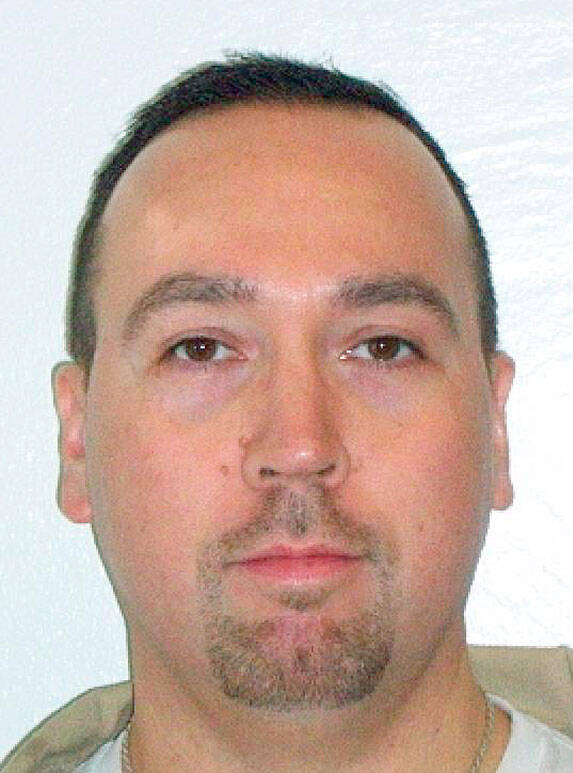STANWOOD — A Camano Island man convicted of murdering and raping a 12-year-old Stanwood girl in 1997 can be released from prison decades early, a state panel ruled in a decision released publicly this week.
David Dodge was sentenced to 50 years for killing Ashley Jones when he was 17.
But a state law passed since his conviction opened the door for his early release. People who received lengthy sentences as juveniles in adult court can petition the Indeterminate Sentence Review Board for a hearing after they have served at least 20 years, among other requirements.
The law was part of a larger reform movement to give more leniency in sentencing for young people whose brains are still developing. The U.S. Supreme Court ruled in 2012 that “children are constitutionally different from adults for purposes of sentencing.” This has led to several early releases for Snohomish County men convicted of murders as teenagers who were sentenced to lengthy prison terms.
One of those who came before the Indeterminate Sentence Review Board was Jeffrey Grote. Like Dodge, he was sentenced to 50 years for his role in a murder he took part in when he was 17. In April, the panel ruled Grote could be released almost three decades early for the Everett killing.
On Dec. 19, the review board also ruled Dodge, now 43, releasable. The decision was released this week.
In 1997, Dodge was living in a group home in south Snohomish County due to a burglary conviction. He ran away and went to a party in Stanwood, where he drank alcohol and smoked marijuana. He looked for a house to burglarize.
The 17-year-old found one with an unlocked door. Inside, Ashley Jones, 12, was babysitting. When Dodge realized someone was home, he left and armed himself with a stick.
He went back inside, struck Jones in the head and ran. He also sexually assaulted her. She died the next day.
Dodge pleaded guilty to first-degree murder, second-degree rape and three burglary counts. He has now served about half of his half-century sentence.
In 2018, Dodge petitioned for early release. The parole board denied his request, ruling he’d more likely than not commit another offense if released. It also claimed Dodge “appears to have minimized his behaviors the night of the offense.”
The board recommended he participate in further programming to address his aggressive responses to criticism. He could petition for early release again in September 2023.
In early 2019, the Camano man appealed the decision. He asserted the review board placed too much consideration on public safety and didn’t apply the presumption of release included in the new state law.
The appeals court dismissed his petition.
But in a ruling nearly exactly a year ago, the state Supreme Court agreed with some of his arguments. In a unanimous opinion, Justice Sheryl Gordon McCloud argued the recent statute says the review board should start from the notion that the person should be released. The board is supposed to set up conditions that minimize the chance of committing new offenses before denying an early release from prison.
And public safety consideration shouldn’t override that presumption of release, the court ruled. McCloud writes that the review board “abused its discretion.”
The ruling opened the door for Dodge’s early release. Last month, he had another hearing before the parole board.
At the hearing, Dodge, who has been in custody at the Monroe Correctional Complex, reportedly took more responsibility for Jones’ murder than he had previously. He told the board his prior minimization was to protect himself. He also expressed remorse.
In the recent ruling, the panel changed its tune from its earlier decision.
“The Board does not find by a preponderance of the evidence that Mr. Dodge is more likely than not to commit any new criminal law violations if released on conditions,” the decision reads.
The ruling notes Dodge has completed several programs in prison to address his problematic behaviors, including sex offender treatment and substance use disorder treatment, as well as programs to increase his problem solving abilities and tolerance for frustration. He also married a woman who lives in Pierce County.
In an interview Friday, Snohomish County Prosecutor Jason Cummings called the decision “disappointing.” He noted how difficult it can be for the families of crime victims to think they have closure with a sentence, only to have it change drastically later.
“I really feel for the family,” Cummings said.
The next step is for Dodge to work with a counselor to submit an offender release plan. Once it’s approved, he’ll likely get out within a month, according to board staff. After that, he’ll remain under Department of Corrections supervision for 10 years.
Upon release, he plans to live in transitional housing for a few months before moving in with his wife.
Jake Goldstein-Street: 425-339-3439; jake.goldstein-street@heraldnet.com; Twitter: @GoldsteinStreet.
Talk to us
> Give us your news tips.
> Send us a letter to the editor.
> More Herald contact information.

























